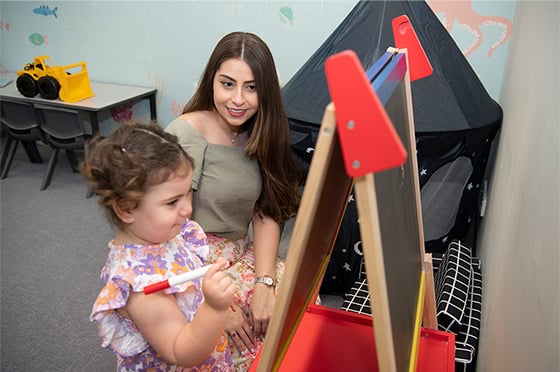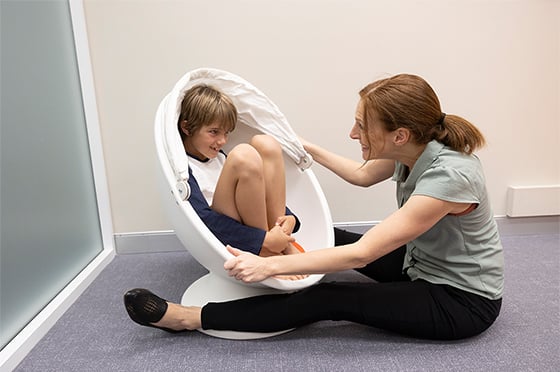Search

News & Events
What is neurodiversity?In this blog, Speech Pathologist Emma Corry explores what neurodiversity is, and what it means in the context of supporting autistic children. Many people may have heard the term “neurodiversity” but what does this term actually mean? In this blog, we are going to dive into the foundations of neurodiversity.

News & Events
Developing a pencil graspIn this blog, Senior Occupational Therapist Gayle Hillen explores the steps to developing a functional pencil grasp.

News & Events
Dressing - Steps to building independenceIn this blog, Occupational Therapist Tarryn Culverhouse provides some tips to help your child increase their independence in dressing.

News & Events
Looking at autism through a social modelIn this blog, Speech Pathologist Linda Arabi discusses the social model and how it influences the supports we provide to autistic children and their families.

News & Events
Sharing attention for connection, communication and learningIn this new blog, Speech Pathologist Emma Corry looks at the importance of shared attention for connection, communication and learning.

News & Events
Is it OK to speak more than one language with my child?Senior Speech Pathologist Marisa Di Lorenzo looks at social communication and language outcomes for bilingual autistic children.

News & Events
Building the foundations of communicationSenior Speech Pathologist Sally Grauaug looks at how to build the foundations of communication with your child.

News & Events
Talking to your child about their autism diagnosisIn this blog, Speech Pathology Lead Aria May explores how to talk to your child about a recent autism diagnosis.

News & Events
Autism Acceptance MonthIn this new blog, Speech Pathology Lead Aria May looks at the importance of Autism Acceptance Month and what you can do to move towards a truly inclusive community.

News & Events
Preparing for the holidaysIn this blog, Occupational Therapy Lead Marie Rodatz looks at the strategies to support a great school holiday outing for your autistic child.
